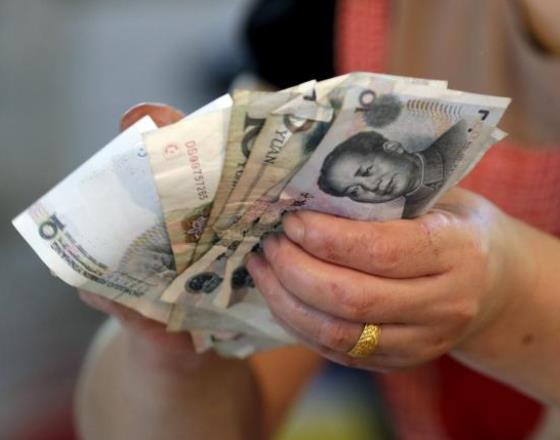
China's yuan rose on Monday as the central bank announced a fresh move to deter offshore speculation in the currency, while stocks rebounded modestly from near levels last seen at the depths of last year's summer crash.
The People's Bank of China (PBOC) said it would start implementing a reserve requirement ratio (RRR) on offshore banks' domestic deposits, in a move that seemed intended to soak up additional liquidity.
"The market sees that this is a gesture by the PBOC to warn speculators that are betting on a fast depreciation of its currency," said Zhou Hao, senior emerging markets economist for Asia at Commerzbank AG in Singapore.
A turbulent start to 2016, with currency and stock markets tumbling, has stoked concerns that Beijing's policymakers are in danger of fumbling as China heads towards its slowest growth in 25 years. Beijing will release GDP data for 2015 on Tuesday.
Global markets have also tumbled in January, with Asian shares sliding on Monday to their lowest levels since 2011 following weak U.S. economic data and sharp falls in oil prices.
Ever-contrary, China's notoriously volatile stock markets opened sharply lower on Monday but reversed course to buck the global trend, with the benchmark Shanghai Composite Index and the CSI300 index of the largest listed companies in Shanghai and Shenzhen both edging up 0.4 percent.
After recent jitters about the health of the world's second-biggest economy, investors took some comfort from data that showed a continuing recovery in the housing market.
But sentiment remained fragile, with analysts expecting further turbulence ahead.
Chinese equities had tumbled on Friday, with the Shanghai index closing lower than at any time since December 2014, leaving most investors who put their faith in Beijing's measures to end last summer's crash nursing losses.
"After experiencing the crashes last year, the sentiment is quite vulnerable and pessimistic now," said Xiao Shijun, an analyst at Guodu Securities in Beijing.
SQUEEZING SPECULATION
China's currency has fallen around 5 percent since August, and while most analysts expect further weakening the authorities have been loath to allow it to depreciate too fast.
Monday's move by the PBOC was seen by some as being - at this stage - more of a symbolic warning to banks, aimed at discouraging them from being too active in yuan dealings as part of its broader campaign to deter those betting offshore that the currency will fall.
Setting an RRR - requiring banks to hold a certain level of currency in reserves - could tighten liquidity leaving less yuan for banks to lend and so making it more expensive for speculators to bet against it.
On Friday, the yuan had weakened sharply offshore, opening up a gap of more than 1 percent with the steady onshore market.
China's central bank tightly manages the onshore market by setting a daily target for the yuan, which is allowed to trade within a 2-percentage point band either side.
The spot market opened at 6.5800 per dollar on Monday and was changing hands at 6.5790 by mid-afternoon, 0.08 percent firmer than the previous close. The central bank had set a firmer tone by raising the mid-point to 6.5590.
The offshore yuan was trading at 6.5855 per dollar, around 0.1 percent softer than the onshore spot rate.
A senior dealer in Shanghai suggested that the RRR move "will help drain yuan liquidity offshore, and will dampen banks' interest in conducting offshore yuan business".
Confusion over China's foreign exchange policy and its commitment to reforms has sparked mayhem in financial markets in recent weeks, as the PBOC allowed the yuan to fall sharply in early January and then moved aggressively to try to steady it.
China's major share indexes have lost 16-18 percent so far in 2016, taking them back to around the levels plumbed in August, when the market slumped more than 40 percent in a summer crash.
Xiao Gang, head of the China Securities Regulatory Commission (CSRC), pledged over the weekend to strengthen oversight of the market.
"The abnormal stock market volatility has revealed an immature market, inexperienced investors, an imperfect trading system, and inappropriate supervision mechanisms," Xiao said at an annual meeting. His remarks were published on the CSRC website.
original source: http://uk.reuters.com/article/uk-china-markets-idUKKCN0UW06E
